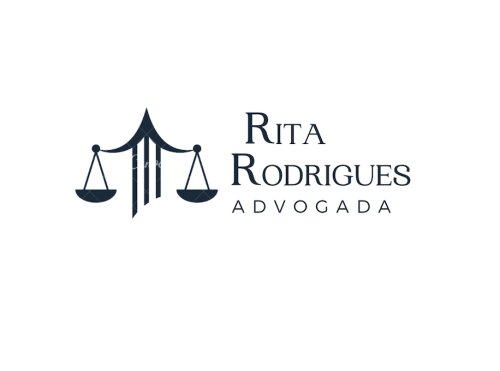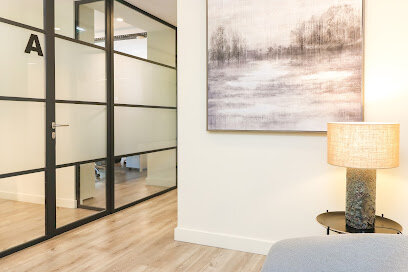Best Landlord & Tenant Lawyers in Porto
Share your needs with us, get contacted by law firms.
Free. Takes 2 min.
Free Guide to Hiring a Real Estate Lawyer
List of the best lawyers in Porto, Portugal
About Landlord & Tenant Law in Porto, Portugal
Landlord and tenant law in Porto, Portugal, is primarily governed at the national level but is highly relevant to residents and property owners in this vibrant city. Rental agreements, tenant protections, and landlord rights are subject to a mix of Portuguese civil law and specific regulations that reflect the dynamic nature of Porto's property market. Whether you are seeking to rent or lease out a property, understanding the local legal framework is essential to ensuring smooth relations and compliance for both parties.
Why You May Need a Lawyer
Disputes and misunderstandings between landlords and tenants are common, and sometimes these cannot be resolved without legal assistance. Common situations where legal help may be required include:
- Drafting or reviewing rental agreements to ensure compliance with Portuguese law
- Eviction proceedings, whether for non-payment of rent or breaches of contract
- Disputes regarding rent increases or the return of security deposits
- Claims of property damage or maintenance issues
- Negotiating early contract termination or resolving issues of illegal subletting
Having a knowledgeable lawyer can assist in protecting your rights, explaining your obligations, and representing you in negotiations or in court, if necessary.
Local Laws Overview
Porto, like the rest of Portugal, follows the Portuguese Civil Code and the New Urban Lease Act (Novo Regime do Arrendamento Urbano - NRAU). Key legal points of interest include:
- Rental agreements can be fixed term or open-ended, but written contracts are mandatory for urban properties
- Landlords must ensure the property meets all habitability standards as set out in the law
- There are restrictions and legal procedures for increasing rent
- Security deposits are legal, but the maximum amount and how they are handled should be clearly specified in the contract
- Evictions require a formal legal process, including specific notice periods and grounds as stipulated in legislation
- Both parties have duties and protections concerning maintenance, use of the property, and privacy rights
Local administrative bodies in Porto may also have particular regulations or ordinances regarding housing, especially in historic or protected zones.
Frequently Asked Questions
What legal protections do tenants have under Portuguese law?
Tenants are protected against unlawful eviction and arbitrary rent increases, and they have a right to a habitable property. The law also grants tenants privacy and security of tenure during the contract period.
How much can a landlord ask for as a security deposit?
Landlords typically ask for one or two months' rent as a deposit. There is no legal maximum, but the amount must be specified in the written contract and should be fair.
Can a landlord increase the rent during the contract period?
Rent increases are allowed only if the contract provides for it or under the terms established by law. Any changes must follow the notice period and procedures outlined in the NRAU.
What steps must a landlord take to evict a tenant?
Eviction requires a legal process, starting with a formal written notice and, if unresolved, proceeding through the courts. Self-help evictions or changing the locks are illegal.
What happens if the property needs urgent repairs?
Landlords are responsible for major repairs. If urgent repairs are needed, tenants should notify the landlord in writing. If the landlord does not act, tenants may be allowed to carry out repairs and deduct the cost from rent in certain cases.
Is subletting allowed in Porto?
Subletting is only allowed if the original lease specifically permits it. Unauthorized subletting is grounds for eviction.
How much notice is required to end a lease?
Notice periods depend on the contract terms and the rental duration. For fixed-term leases, tenants usually must give 120 days notice, while landlords may have to give six months' notice. Always check your contract for the agreed terms.
Can a landlord refuse to return the security deposit?
A landlord can only retain the deposit to cover unpaid rent or repairs beyond normal wear and tear. Any deductions must be justified and detailed for the tenant.
Are there any special rules for short-term rentals?
Short-term rentals (such as holiday lets) are subject to separate rules and may require registration with local authorities. These are distinct from standard residential lease agreements.
Where can I resolve landlord-tenant disputes without going to court?
Many disputes can be settled through mediation or via the National Rental Counter (Balcão do Arrendamento), which offers mechanisms for more efficient dispute resolution.
Additional Resources
If you need more information or help, consider these resources:
- National Rental Counter (Balcão do Arrendamento) for rent and tenancy disputes
- Porto City Council's Housing Department for local housing regulations and support
- Portuguese Consumer Protection Association (DECO) for tenant rights advice
- Order of Portuguese Lawyers (Ordem dos Advogados) for finding a qualified landlord-tenant lawyer
Next Steps
If you are facing a landlord-tenant issue in Porto, Portugal, start by assembling all relevant documents, such as your rental contract and correspondence. Assess whether your situation can be resolved through direct negotiation. If not, consider seeking mediation or contacting local housing authorities.
For more complex cases or if you believe your rights are being breached, it is advisable to consult a qualified lawyer with experience in landlord and tenant law. A legal professional can explain your options, guide you through the appropriate legal processes, and represent your interests in any proceedings.
Always act quickly, respect notice periods, and seek professional advice when in doubt. Prompt action and accurate information are key to protecting your rights as a landlord or tenant in Porto.
Lawzana helps you find the best lawyers and law firms in Porto through a curated and pre-screened list of qualified legal professionals. Our platform offers rankings and detailed profiles of attorneys and law firms, allowing you to compare based on practice areas, including Landlord & Tenant, experience, and client feedback.
Each profile includes a description of the firm's areas of practice, client reviews, team members and partners, year of establishment, spoken languages, office locations, contact information, social media presence, and any published articles or resources. Most firms on our platform speak English and are experienced in both local and international legal matters.
Get a quote from top-rated law firms in Porto, Portugal — quickly, securely, and without unnecessary hassle.
Disclaimer:
The information provided on this page is for general informational purposes only and does not constitute legal advice. While we strive to ensure the accuracy and relevance of the content, legal information may change over time, and interpretations of the law can vary. You should always consult with a qualified legal professional for advice specific to your situation.
We disclaim all liability for actions taken or not taken based on the content of this page. If you believe any information is incorrect or outdated, please contact us, and we will review and update it where appropriate.















